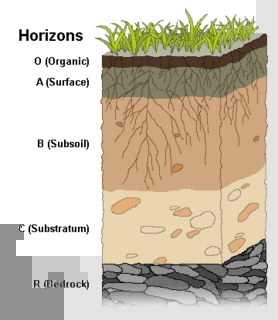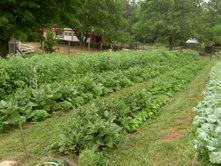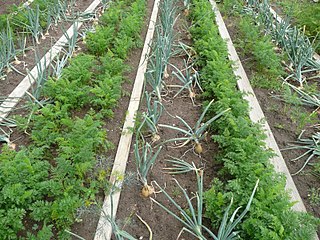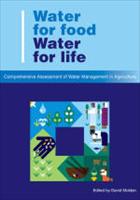 | |
| Formation | 2011 |
|---|---|
Parent organization | Consultative Group on International Agricultural Research |
| Website | http://wle.cgiar.org/ |
Water, Land and Ecosystems is one of several new research programmes approved by the CGIAR during 2011 [1] after an extensive period of consultation that began in 2009. This research programme will draw on the resources of 14 CGIAR and numerous external partners to provide a more integrated approach to research into managing natural resources. The aim of the research programme is to increase agricultural productivity while protecting the environment, so food security is ensured for most of humanity and that poverty becomes history. The five main strands to the programme are: River basins; Irrigation systems; Information systems; Resource reuse and recovery; and Rainfed agriculture systems.

CGIAR is a global partnership that unites organizations engaged in research for a food-secured future. CGIAR research is dedicated to reducing rural poverty, increasing food security, improving human health and nutrition, and ensuring sustainable management of natural resources. It is carried out by 15 centers that are members of the CGIAR Consortium, in close collaboration with hundreds of partners, including national and regional research institutes, civil society organizations, academia, development organizations, and the private sector. It does this through a network of 15 research centers known as the CGIAR Consortium of International Agricultural Research Centers. These research centers are spread around the globe, with most centers located in the Global South, at Vavilov Centers of agricultural crop genetic diversity. CGIAR research centers are generally run in partnership with other organizations, including national and regional agricultural research institutes, civil society organizations, academia, and the private sector.
Food security is a measure of the availability of food and individuals' accessibility to it, where accessibility includes affordability. There is evidence of food security being a concern over 10,000 years ago, with central authorities in ancient China and ancient Egypt being known to release food from storage in times of famine. At the 1974 World Food Conference the term "food security" was defined with an emphasis on supply. Food security, they said, is the "availability at all times of adequate, nourishing, diverse, balanced and moderate world food supplies of basic foodstuffs to sustain a steady expansion of food consumption and to offset fluctuations in production and prices". Later definitions added demand and access issues to the definition. The final report of the 1996 World Food Summit states that food security "exists when all people, at all times, have physical and economic access to sufficient, safe and nutritious food to meet their dietary needs and food preferences for an active and healthy life".

Poverty is the scarcity or the lack of a certain (variant) amount of material possessions or money. Poverty is a multifaceted concept, which may include social, economic, and political elements. Absolute poverty, extreme poverty, or destitution refers to the complete lack of the means necessary to meet basic personal needs such as food, clothing and shelter.
A report released by UNEP and the International Water Management Institute (IWMI – which comes under the CGIAR umbrella and will be a major contributor to the new research programme), exemplifies the concept of conducting agriculture within healthy ecosystems. Current farming methods have resulted in over-stretched water resources, high levels of erosion and reduced soil fertility. According to the report, [2] there is not enough water to continue farming using current practices; therefore how we use critical water, land, and ecosystem resources to boost crop yields must be reconsidered. The report suggested that we need to assign value to ecosystems, recognize environmental and livelihood tradeoffs, and balance the rights of a variety of users and interests. We would also need to address inequities that result when such measures are adopted, such as the reallocation of water from poor to rich, the clearing of land to make way for more productive farmland, or the preservation of a wetland system that limits fishing rights. [3]

The International Water Management Institute (IWMI) is a non-profit research organisation with headquarters in Colombo, Sri Lanka, and offices across Africa and Asia. Research at the Institute focuses on improving how water and land resources are managed, with the aim of underpinning food security and reducing poverty while safeguarding vital environmental processes.

Agriculture is the science and art of cultivating plants and livestock. Agriculture was the key development in the rise of sedentary human civilization, whereby farming of domesticated species created food surpluses that enabled people to live in cities. The history of agriculture began thousands of years ago. After gathering wild grains beginning at least 105,000 years ago, nascent farmers began to plant them around 11,500 years ago. Pigs, sheep and cattle were domesticated over 10,000 years ago. Plants were independently cultivated in at least 11 regions of the world. Industrial agriculture based on large-scale monoculture in the twentieth century came to dominate agricultural output, though about 2 billion people still depended on subsistence agriculture into the twenty-first.

Soil fertility refers to the ability of soil to sustain agricultural plant growth, i.e. to provide plant habitat and result in sustained and consistent yields of high quality. A fertile soil has the following properties:








